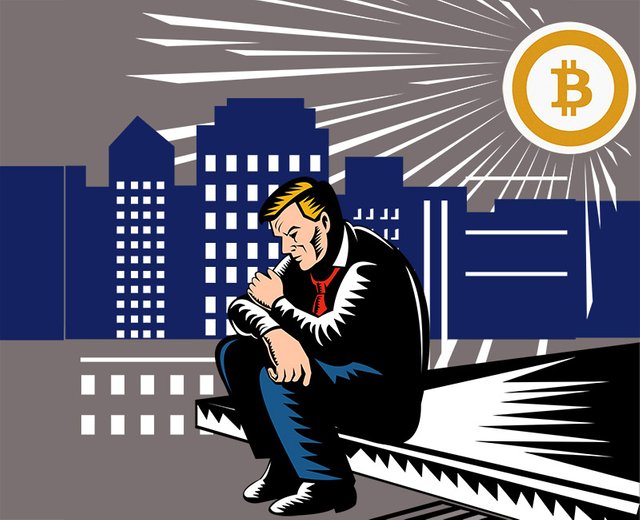
There are 3 ways that an individual can pull themselves out of poverty: innovation, saving, investment. They can choose to create something that their fellow man wants (a product or service) and that they will exchange their currency for. Or the individual has the choice to save money from working, however limited their wages may be, in the hopes that they will have enough one day to invest in something that will help them to elevate their success. And along with that comes investment which can be risky, but it can also pay-off for many by changing their fortunes for the better.

There are many false remedies employed today to battle poverty but they haven't yet solved the problem. You cannot simply throw $X amount of dollars at the issue of poverty in the world and then think that the problem would be finally solved. If every individual on earth were given a million dollars today, by tomorrow there would be inequality again because some people would save their money and others would spend it. Eventually you would arguably end up right back where you were. Some people are good with money and some just aren't. The thing that changes poverty more than anything is giving an individual a job and giving them a way to provide for themselves and their family.

Another thing that greatly helps is innovation, when the individual can create a product or service to meet the needs of their fellow man; something they want and need. But what they need for this is economic freedom and that is something greatly lacking around the world. The more regulations that there are in the market space, the more that it is going to harm those in poverty because it only makes it more costly for them to get involved and compete.

The P2P economy is greatly helping with this by enabling people to use and monetize whatever property they already have now; their house, cars, and so on. As is the introduction of open source, peer-to-peer cryptocurrencies like bitcoin and others.

Cryptocurrency is just one innovation that is a game-changer for those in extreme poverty around the world, because it enables millions of people to get involved in the marketplace who otherwise might not have been given the chance. In sub-saharan Africa for example, over 75 percent of the population are reported as not even having a bank account. And transferring funds using traditional exchange centers can quite often be very costly. Also, there are many dangers associated with the government and central banks heavily manipulating and controlling our fiat currency and cryptocurrency gives people an option to get away from that.
Thanks to this innovative currency, if an individual simply has a smartphone (or computer etc) and access to internet, then they'll be able to get involved in buying and selling in the online marketplace. Cryptocurrency is greatly altering the industry because it is able to solve a problem by meeting a need for many people around the world.
Think I would have more chance robbing a bank as cryptocurrency is way too hard to understand
Downvoting a post can decrease pending rewards and make it less visible. Common reasons:
Submit
Nice post! Cryptocurrency could definitely be a boon to those everywhere living in poverty.
Downvoting a post can decrease pending rewards and make it less visible. Common reasons:
Submit
Crypto currency has the opportunity to do what fiat currency could never do, and thats brung about GROUP ECONOMICS
Downvoting a post can decrease pending rewards and make it less visible. Common reasons:
Submit
give me a million? I PROMISE I won't spend too much!!! :)
Downvoting a post can decrease pending rewards and make it less visible. Common reasons:
Submit
We no longer want to live in a society where it feels like you get punished for being poor
Downvoting a post can decrease pending rewards and make it less visible. Common reasons:
Submit
More and more people are becoming poor in developed countries because
The solution to eliminating poverty is to reduce the work week in order to get people working. And raise wages (primarily at the bottom-end) to ensure that people still get a livable wage after seeing a reduction in their work hours. Good luck getting companies to see the benefits of a reduced work week and voluntarily reducing it so that they can get everyone working.
I don't believe that voluntaryism is going to solve everything. Private markets are not perfect. Central planning is not perfect (USSR, Cuba, Venezuela, etc. have made a lot of mistakes but private actors make a lot of poor choices too. There isn't a single libertarian utopia in existence. And there isn't one for a reason). The real answer lies somewhere in between. There are instances where the government needs to back off. Absolutely. As a self-employed bitcoin trader, I have to deal with the government and banker red tape. I just want to continue earning a living doing what is my passion (buying and selling bitcoin). But the government and the bankers (who are worried about legal compliance imposed on them by the government) interfere with our trade. But just because the government is prone to mistakes and red tape excess, doesn't mean that giving corporations free reign to do whatever the fuck they want is a better alternative.
But I do think the government needs to step in and mandate a 30 hour work week and a $15USD/hr minimum wage. If you work 30 hours/week, that's $450USD/week. That's a fair, livable wage in most of the United States. Corporations, left alone, are not going to voluntarily reduce the work week. Corporations by nature want to work their employees to the bone. They don't see the long-term social benefits of reduced work hours and having everyone who is willing and able working.
Downvoting a post can decrease pending rewards and make it less visible. Common reasons:
Submit
Downvoting a post can decrease pending rewards and make it less visible. Common reasons:
Submit